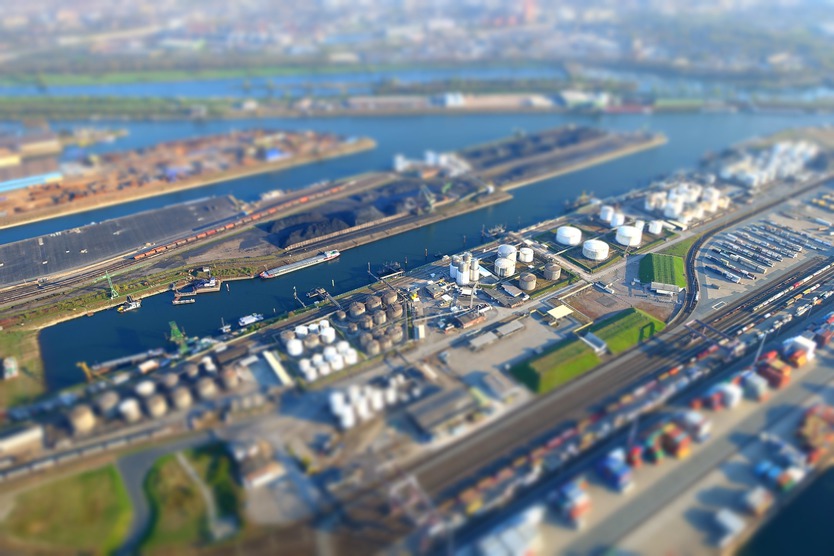
With the enerPort project The Fraunhofer Institute for Environmental, Safety and Energy Technology as well as other partners will build Europe’s first CO2-neutral inland port.
The state of North Rhine-Westphalia and the Federal Ministry for Economic Affairs and Climate Protection (BMWK) are ramping up their commitment to decarbonise Germany’s transport and logistics industry with the enerPort project, which will deliver Europe’s first CO2-neutral inland port in four years’ time. Rather symbolically, the Duisburg Gateway Terminal (DGT) will be built on a former coal island.
The lighthouse, multi-stakeholder initiative will put into practice hydrogen-based power and cleantech storage solutions. The Fraunhofer Institute for Environmental, Safety and Energy Technology (UMSICHT) will take the scientific lead, while Westenergie Netzservice will install the microgrid and Stadtwerke Duisburg will design an electrolyser and hydrogen filling station.
"An intelligent local energy network couples and controls renewable energies in the form of photovoltaic and hydrogen-based combined heat and power plants with electrical, thermal energy storage systems as well as hydrogen storage and consumers such as shore power, charging columns and crane systems,” explains Alexander Garbar, deputy head of corporate development and responsible for sustainability at DGT, in an article in the local news agency WAZ.
The digital logistics infrastructure will also be revolutionary: intelligently networked cargo movements will eliminate the need for reach stackers and cargo power connections for every ship. And due to its modular structure, hydrogen electrolysers, H2-powered locomotives and other applications can be docked. The port will also supply excess power to the local neighbourhood.
We are showing what tomorrow's logistics and energy supply will look like," says Duisport Markus Bangen in an UMSICHT press release. He hopes DGT will become the model for future free ports around the world. enerPort II is funded by the BMWK with EUR 13 million until 2026.


